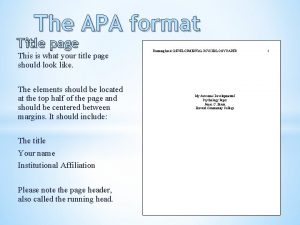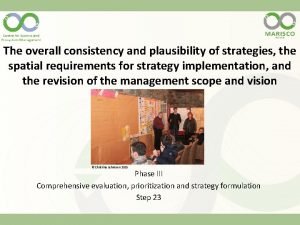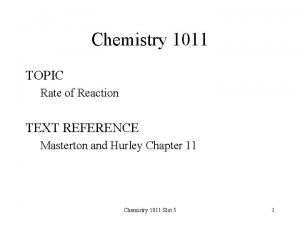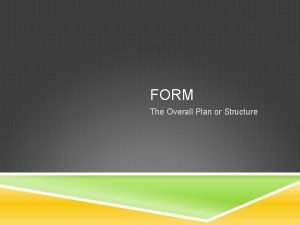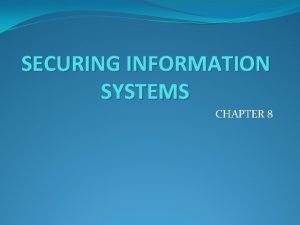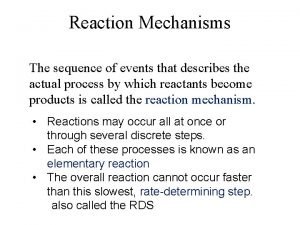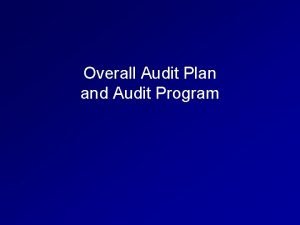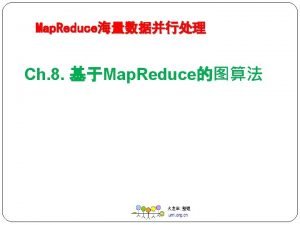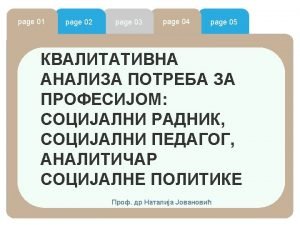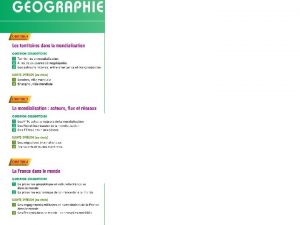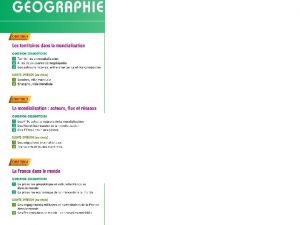RiskPersonality Assessments RiskPersonality Assessments Page 2 I Overall







- Slides: 7

Risk/Personality Assessments

Risk/Personality Assessments Page 2 I. Overall Purpose: Restoration of Hope and Function in Children A. Method 1. Obtain clarity on the total situation 2. Clinical data guides interventions and recommendations B. Work Product 1. Report of evaluation 2. Could be a redacted report for school chart 3. Results meeting C. Caveats 1. Clinical judgment is part of process and evaluator is not infallible 2. Not intended for court or other fact-finding in general

Risk/Personality Assessments Page 3 I. Typical Referral Questions A. Diagnostic--Is there a biological process involved? B. Explicative--Is there a social/emotional process involved? C. RISK Assessment--Is the child generally safe? Under what circumstances? D. Personality Assessment--What is the child’s level and type of functioning? E. Ameliorative--What should be done?

Risk/Personality Assessments Page 4 I. Evaluation Process--Prior to Evaluator Contact A. Informed Consent by Parents/Guardians including lawyer/ed advocate B. Information Gathering--Record Review--Evaluator reviews all materials 1. Teacher Reports 2. Developmental/ Medical History (Could include outside providers) 3. Intervention History 4. Child Protective Services Involvement 5. Previous Evaluations (Could be outside providers) 6. Behavioral History 7. Ed Plan/504 Plan C. Further Background Information Gathering--Process approach guides 1. Contact with School staff--Special Ed Director, Admin--telephone or email 2. Possible contact with outside support system

Risk/Personality Assessments Page 5 I. Evaluation Process--Evaluator Contact--3 -5 hours direct contact, completion is event-based A. “Envelope Setting”--announcing the “Rules” of the evaluation 1. Stating purpose of eval--School wants me to tell them how to help/support your child more effectively 2. Limited confidentiality 3. Mandated reporter status 4. Potential destinations of report--e. g. school, MD, therapist, DCF 5. Irrelevant or private information could be kept confidential B. Engagement 1. Families and students may feel pressure/blame/mistrust /defensive/distress 2. Evaluator often must reorient case to problem-solving, coping, healing, improvement 3. Must engage successfully with families and students 4. Parents’ understanding should be that the school is not determining findings--evaluator is independent

Risk/Personality Assessments Page 6 I. Evaluation Process--Evaluator Contact--3 -5 hours direct contact, completion is event-based A. Diagnostic Interview--Substantial time with family/parents, less so with older students and with less risky students 1. “Why does the school want me to look at your family? ” 2. Obtaining chronology from family 3. Gathering info about family interactions 4. What is the family’s theory about what is happening? The student’s? 5. What’s the student’s experience? 6. What strengths are available to the family? To the student? 7. Mental status exam--ongoing through this process and beyond B. Formal Evaluation--Psych testing 1. Process approach--data from history and interview guides the tests to be administered 2. General psychological tests, routinely administered. age-dependent 3. Projective Tests, routinely administered, age-dependent: 4. Process-guided tests administered if relevant

Risk/Personality Assessments Page 7 I. Evaluation Process--Results A. Report 1. Formal, conservative description of results synthesizing data 2. Formulation organized in descending order of perceived most important factors including any new diagnoses 3. Some formulations include an event chronology and describe the student’s interaction with the events 4. RISK assessments include a rough assessment of the level and type of risk the student seems to pose 5. Recommendations B. Results Meeting 1. Summarizing and discussing any findings 2. Discussing with all stakeholders how the system might respond 3. More speculative material could be offered by the examiner 4. Suggestions for record storage for evals with sensitive material C. Reports and consultation are always available after the process ends
